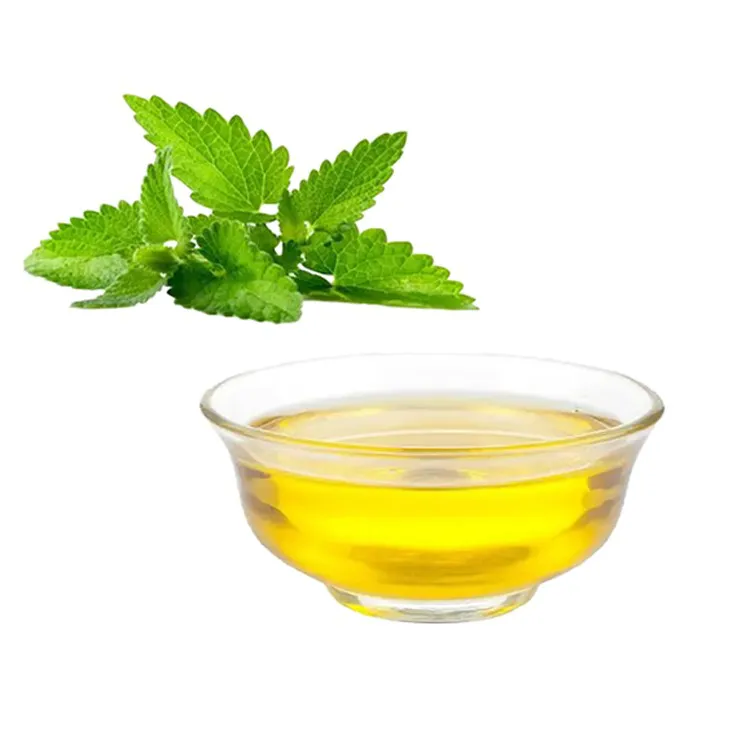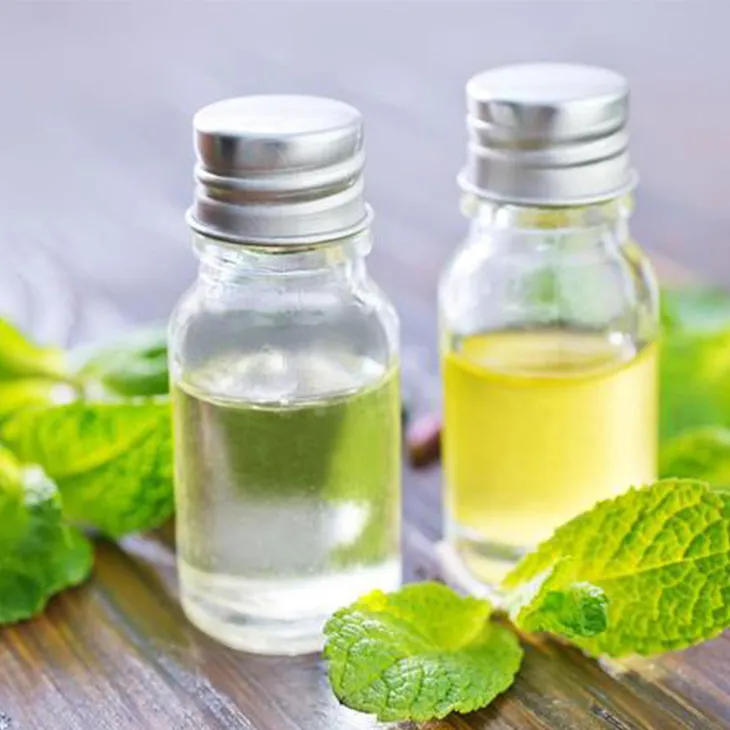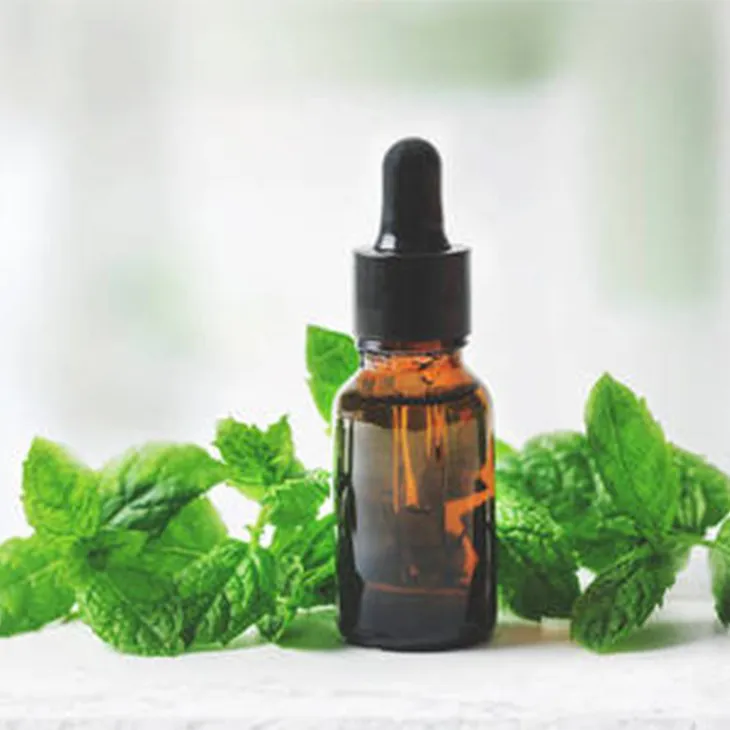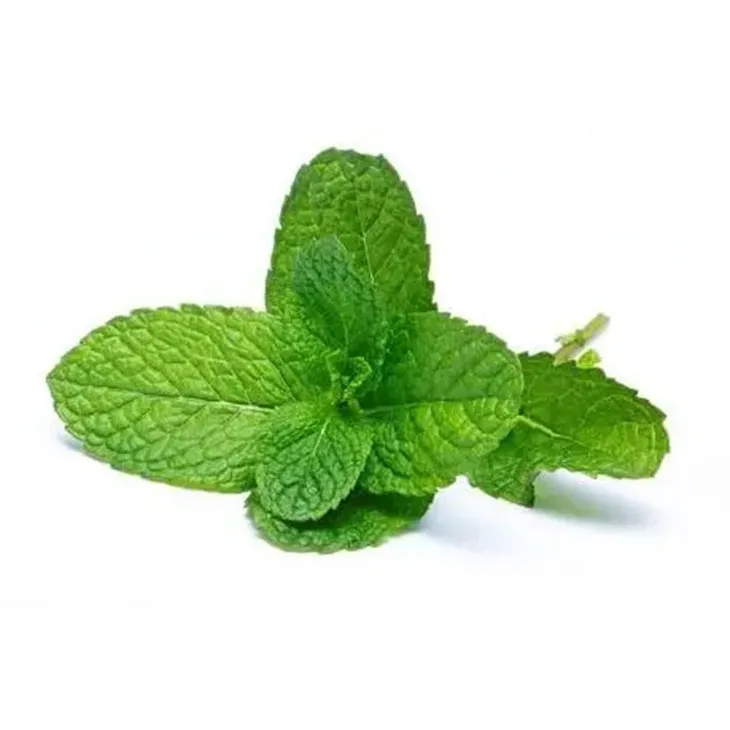- 0086-571-85302990
- sales@greenskybio.com
Regarding Peppermint Oil: A Cool and Refreshing Agent from Natural Peppermint.
2024-12-09

1. Introduction to Peppermint Oil
Peppermint Oil, which is derived from the natural peppermint plant, is truly a remarkable substance with a wide range of applications. It has been cherished for centuries for its unique properties. The peppermint plant, known scientifically as Mentha piperita, is a hybrid of watermint and spearmint. This origin gives Peppermint Oil its distinct characteristics that set it apart from other essential oils.

2. The Cooling and Soothing Sensation
One of the most well - known aspects of peppermint oil is the cooling and soothing experience it provides. When applied topically, it creates a refreshing coolness on the skin. This is due to the menthol content in the oil. Menthol has the ability to interact with the cold - sensitive receptors in our skin, tricking our nerves into perceiving a cooling sensation. This makes it a popular choice for products such as muscle rubs and cooling gels. It can be especially beneficial after a long day of physical activity when muscles may be sore and in need of relief.

3. Antimicrobial Qualities
Peppermint oil also possesses antimicrobial qualities. It has the power to inhibit the growth of certain bacteria, fungi, and viruses. In a world where we are constantly exposed to various pathogens, this property of peppermint oil is highly valuable. For example, it can be used in the home as a natural disinfectant. A simple spray made with peppermint oil and water can be used to clean countertops, doorknobs, and other frequently - touched surfaces, reducing the risk of microbial contamination.

4. Peppermint Oil in Health
4.1 Alleviating Headaches
When it comes to health, peppermint oil can be a useful remedy for headaches. The cooling effect of the oil helps to soothe the pain associated with headaches. There are several ways to use peppermint oil for headache relief. One method is to apply a diluted form of the oil to the temples and forehead. Another option is to inhale the aroma of peppermint oil, either by using a diffuser or simply smelling it from a bottle. This inhalation can have a calming effect on the nervous system, which may in turn reduce the intensity of a headache.
4.2 Digestive Aid
Peppermint oil is also known to be beneficial for the digestive system. It can help to relieve symptoms such as indigestion, bloating, and stomach cramps. The oil works by relaxing the muscles in the digestive tract, allowing for smoother digestion. It can be taken internally in a very diluted form, although it is important to consult a healthcare professional before doing so, as essential oils are highly concentrated substances.

5. Peppermint Oil in the Beauty Industry
5.1 Promoting a Healthy Scalp
In the beauty industry, peppermint oil is often added to hair products for its ability to promote a healthy scalp. It helps to increase blood circulation in the scalp, which can nourish the hair follicles. This increased circulation can lead to stronger, healthier hair growth. Additionally, the cooling and refreshing properties of peppermint oil can make the scalp feel clean and invigorated. It can also be used to combat dandruff, as its antimicrobial properties can help to keep the scalp free from fungal infections that are often associated with dandruff.
5.2 Skin Care
Peppermint oil can also be used in skin care products. Its antibacterial nature makes it suitable for treating acne - prone skin. However, it should be used with caution, as it can be irritating to some people's skin. When used in the right concentration, it can help to unclog pores and reduce inflammation. It can also be added to body lotions and creams to provide a refreshing scent and a cooling sensation on the skin.
6. Peppermint Oil in Homemade Cleaning Products
Peppermint oil is a great addition to homemade cleaning products. Its fresh scent can make cleaning a more pleasant experience. As mentioned earlier, its antibacterial nature also makes it effective at cleaning and disinfecting. To make a simple all - purpose cleaner, one can mix a few drops of peppermint oil with water and a small amount of vinegar in a spray bottle. This cleaner can be used on a variety of surfaces, from kitchen countertops to bathroom tiles. It not only cleans but also leaves behind a pleasant, minty aroma.
7. Precautions and Considerations
While peppermint oil has many benefits, it is important to use it with caution. Since it is a highly concentrated substance, it should always be diluted before use, especially when applying it to the skin. Some people may be allergic to peppermint oil, so it is advisable to do a patch test before using it for the first time. When using peppermint oil internally, it is crucial to follow the guidance of a healthcare professional, as improper use can lead to adverse effects. Additionally, peppermint oil should be kept out of reach of children and pets, as ingestion can be harmful.
8. Conclusion
In conclusion, peppermint oil, sourced from natural peppermint, is a versatile and valuable substance. Its cooling and soothing properties, antimicrobial qualities, and various applications in health, beauty, and cleaning make it a popular choice. Whether it is used to relieve a headache, promote a healthy scalp, or clean the home, peppermint oil offers a natural and effective solution. However, it is essential to use it responsibly and with proper precautions to ensure its safe and beneficial use.
FAQ:
Q1: What are the main uses of peppermint oil?
Peppermint oil has multiple uses. It can be used for a natural cooling and soothing experience. Topically, it provides refreshing coolness. It also has antimicrobial qualities. In health, it can alleviate headaches. In the beauty industry, it is added to hair products for a healthy scalp, and in homemade cleaning products for its fresh scent and antibacterial nature.
Q2: How does peppermint oil help with headaches?
The cooling effect of peppermint oil helps to soothe the pain, thus being useful in alleviating headaches.
Q3: Why is peppermint oil added to hair products?
Peppermint oil is added to hair products because it can promote a healthy scalp.
Q4: What makes peppermint oil suitable for homemade cleaning products?
Peppermint oil has a fresh scent and antibacterial nature, which makes it a great addition to homemade cleaning products.
Q5: What gives peppermint oil its unique properties?
Peppermint oil's natural composition gives it its unique properties such as providing a cooling effect, having antimicrobial qualities, etc.
Related literature
- The Benefits of Peppermint Oil in Health and Wellness"
- "Peppermint Oil: Its Role in the Beauty Industry"
- "Peppermint Oil as a Natural Antimicrobial Agent"
- ▶ Hesperidin
- ▶ Citrus Bioflavonoids
- ▶ Plant Extract
- ▶ lycopene
- ▶ Diosmin
- ▶ Grape seed extract
- ▶ Sea buckthorn Juice Powder
- ▶ Fruit Juice Powder
- ▶ Hops Extract
- ▶ Artichoke Extract
- ▶ Mushroom extract
- ▶ Astaxanthin
- ▶ Green Tea Extract
- ▶ Curcumin
- ▶ Horse Chestnut Extract
- ▶ Other Product
- ▶ Boswellia Serrata Extract
- ▶ Resveratrol
- ▶ Marigold Extract
- ▶ Grape Leaf Extract
- ▶ New Product
- ▶ Aminolevulinic acid
- ▶ Cranberry Extract
- ▶ Red Yeast Rice
- ▶ Red Wine Extract
-
Natural grape seed extract
2024-12-09
-
Jujube Extract
2024-12-09
-
Green Tea Extract
2024-12-09
-
Citrus Aurantii Extract
2024-12-09
-
Hops Extract
2024-12-09
-
Tongkat Ali Extract Powder
2024-12-09
-
Honeysuckle Pollen
2024-12-09
-
Hesperidin
2024-12-09
-
Carrageenan Extract Powder
2024-12-09
-
Red Wine Extract
2024-12-09





















